
With the recent cast reveals for the upcoming Disney+ Percy Jackson and the Olympians series, Percy Jackson has become a hot topic. However, you may not be aware that Rick Riordan's highly-acclaimed YA series has also received another adaptation. A musical version opened on Broadway back in the year 2019. Now, that same musical has made its way over to Japan!
In this latest Enstarz exclusive interview, I sat down with Keito Okamoto, who landed the coveted lead role of Percy Jackson in the Japanese stage musical. An ex-member of Johnny & Associates J-pop band Hey! Say! JUMP, the shy, unassuming Keito talks about his time studying acting at New York's American Academy of Dramatic Arts, how he approaches his craft, and what it has been like bringing Percy Jackson to life for the stage.
Q: Thank you so much for sitting down with me today. How did the opportunity to perform in the Percy Jackson musical arise? How did things take shape during rehearsals?
Keito: At first, I heard my manager and the producer of the musical that there is a very good role for me. So, I asked, "Okay, what is it?" And my manager said that there's a musical called "Percy Jackson," and I was like, "Wait, wait, wait. Percy Jackson, right? It's based on a novel."
Because most people don't know the story of Percy Jackson in Japan, so the producer didn't know. But my manager was like, "Everybody knows Percy Jackson! What character will he be playing?" And the producer said, "Percy Jackson!" And I was like, "Oh, wow! Very big deal."
I mean, at first, I felt a little bit pressured because it's a character that everybody knows in the world. And also, when I was a kid, I used to read the novels that were written by Rick Riordan, and I was very inspired by them.
As a kid, I read the story, and I was like, "Okay, maybe this is my life. Maybe I should live like Percy Jackson." But now, when I heard that I had the opportunity to play Percy Jackson, at first, I had pressure. But since this story is not actually so well-known in Japan, I thought this would be a really great opportunity for me to spread the story of Percy Jackson to the audience in Japan.
I'm still trying my best right now. Yes.
The rehearsals were very cool...
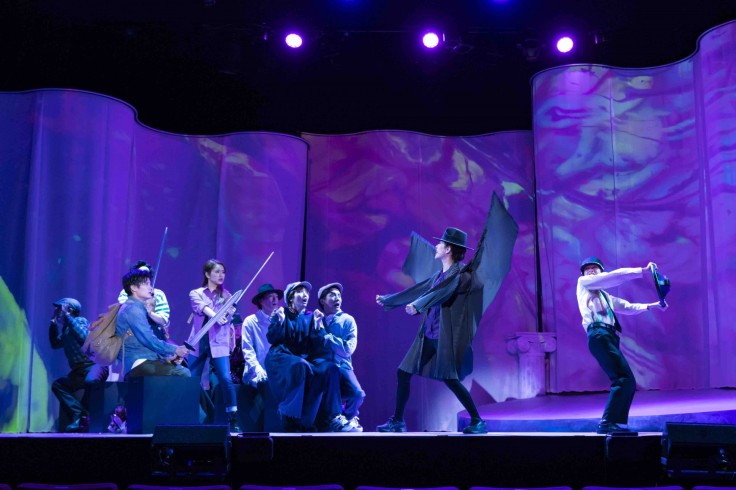
Q: But wait, how long did you get to rehearse? Like, what was it like?
Keito: I think the rehearsal was one and a half months.
Q: Wow, that doesn't sound like a lot.
Keito: I mean, in Japan, the rehearsal period for theatres are mainly one month on average. That's a very different thing about the rehearsals in America and in Japan. But, it was actually it was quite long for Japanese productions because, um, because it was one and a half months. The funny thing about me doing Percy Jackson is that I'm not a very talkative person. I'm not a very social person, like Percy Jackson. But, when I'm actually doing the rehearsals, and the music and the cast and the story kind of helped me build Percy Jackson. And, you know, it's not very normal to be the son of Poseidon. But during the rehearsals, I felt like this energy inside me that I gained confidence and I felt like I was Percy. Because of the music, the great music that Rokicki wrote, and the story. And that was that was an amazing experience for me.
Q: Every actor must come to the role with their own take. Did you get to originate a lot of things for the role?
Keito: Oh, yes. I did lots of research about Percy Jackson. I, of course, reread the novel. It's very basic, but let all the Uta Hagen questions about "Who I am?" and "What he wants to do?". And, I wrote them down in great detail. And, I wrote lots of journal entries of me as Percy Jackson. [For example,] in the first song of this musical, he gets expelled from school. And so, I wrote journals about how I felt after I got expelled and their experiences I had at the young kids' school and lots of things. At first, when I'm doing plays, what I usually do is I kind of empty myself. I tried to lose myself and to have nothing in me. Even when reading the script and learning the lines. I empty myself and I put Percy inside of me. So, that was the journey I went through.
Q: Oh, interesting. So, have you been watching the other iterations of Percy? For example, there's the movie, which has been variously received by Percy Jackson fans. And now, there's going be the Disney+ series that's coming out.
Keito: I did. I watched a movie. I rewatched the movie because I had watched the movie as a kid. I mean, it's the same story. So, I got lots of inspiration. But, there was a little difference between the movie and the novel, actually. In the novel, Percy Jackson was 12 years old. But in the movie, it wasn't actually 12.
Q: They kind of aged everyone up a little bit.
Keito: Yeah, and I heard from the director for this musical that they're actually like aging [Percy] a little bit higher. So yeah, I watched the movie, and I loved it. I loved the movie. And at the end of the movie, I felt I was encouraged and strong. So, and after watching the movie, I felt, "Okay, this is what I need to do in my musical." To make the audience feel encouraged and feel empowered. Like Percy. And yeah, and I'm very, very excited for the [Disney+] series.
Q: There are a lot of fans who are not so happy with the first movie that came out. So, do you worry at all about fan reactions to your version of Percy?
Keito: Well, that that was a pressure that I had in the beginning of the rehearsal. But, in the middle of it, I didn't really think about it. I mean, I was just doing my best to be him, and I knew this very, very well. And the music was helping me and the cast was helping or the staff was helping me do this musical. I actually had no time thinking about what would the fans feel. It's very difficult to change a third person's point of view. I if I think about what would the audience feel, it would be very difficult to actually trust myself. So, I didn't really think about that. But what I actually wanted to do is just tell the story, to spread the story. And, I had some reactions from my friends watching this musical. Some people really love the musical, and was actually inspired by the story. I mean, most people haven't actually read the novel, and they started reading the novel after watching this musical. So, that was very, very cool.
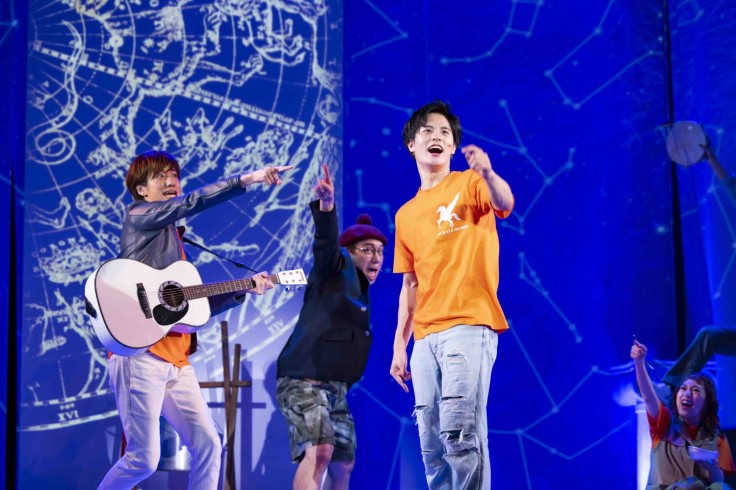
Q: I heard that you have I heard that you've had other theater works in the pipeline. What projects have got you excited? And why? Have you always had an interest in musicals or theater, as opposed to TV or film?
Keito: I've always been interested in theater. I love TV and film, but mostly theater. I believe something happens in theater, and also, my father is also a theatre actor. And I've been seeing him act since I was a kid. I was very influenced by him. But also, my agency of Johnny's Entertainment, the previous CEO, Johnny Kitagawa's, dream was actually to be on Broadway. He saw West Side Story, and then he wanted to make a Broadway in Japan. That's mainly how Johnny's was actually created. And, I used to hear so many stories from Johnny about all his experiences, like watching Broadway shows and theaters, and how he wanted to create original musicals.
I loved doing theater because you never know what is actually going to happen when the stage opens. And, I feel like that when I'm doing plays, and when I'm doing musicals, I feel like I create the show with the audience. I heard from some directors in Japan that theater is never actually completed because there has to be an audience for theater. So, I love this feeling when I'm standing on stage in theater. I feel like I'm completing the show with the audience, like a collaboration work. I love that feeling. And, I'm also a fan of it when I'm sitting in the audience.
Q: Do you get a different feeling when you consume theater, as opposed to consuming like a movie or TV show?
Keito: I do. I feel like the energy is different in theaters. Because the actor is standing right in front of me, and is acting. It's very different from right now. I mean, we got used to it, having interviews in Zoom. But, in person, it's actually very different. I remember when I was in New York, I went see the production of True West on Broadway, and Ethan Hawke was playing one of the characters. And, I was sitting in my seat and I'm like, "Oh, my God! He's actually alive. It's Ethan Hawke!" And, that experience is so weird because he's a person I was watching in movies and TV.
Q: I also heard that you study at the American Academy of Dramatic Arts in New York. What inspired the transition from singer to actor? Or, was that something that you've always wanted to do? And what made you decide to travel halfway around the world to study? What was your experience studying acting like?
Keito: I've always been interested in on-stage acting, theatrical acting. There are not a lot of places to actually learn acting in Japan. That's a very different thing about Japan, [when compared to] all other countries. There are not a lot of drama schools. There are lots of music schools, but there are actually not a lot of drama schools. So, there are institutions that actually teach us acting, like training institutions for Kabuki. But, it's a very traditional thing. It's very different. And, I mean, I used to live in England for like, five years when I was a kid. But I wasn't actually using English when I'm when I was in Japan. I was interested in acting. I mean, I did some acting. I did have some acting experiences in Japan. TV dramas and things.
I was very shocked because I thought I could do it, but I couldn't. And I was thinking about it. And, of course, I hadn't actually learned before. Age 25 was a turning point for me. And I really wanted to learn acting, and also improve my English. And, if I didn't know how to act in English. I mean, I've always wanted to, like act in English, or like to do something that only I could do. That's one of the reasons why I went to America. I've actually never lived in America. New York is a center of entertainment. I auditioned for some acting schools in LA, and in New York, and England. I got accepted to the American Academy. Then I talked to my mentors and like, "I really want to try this opportunity to learn acting in English."
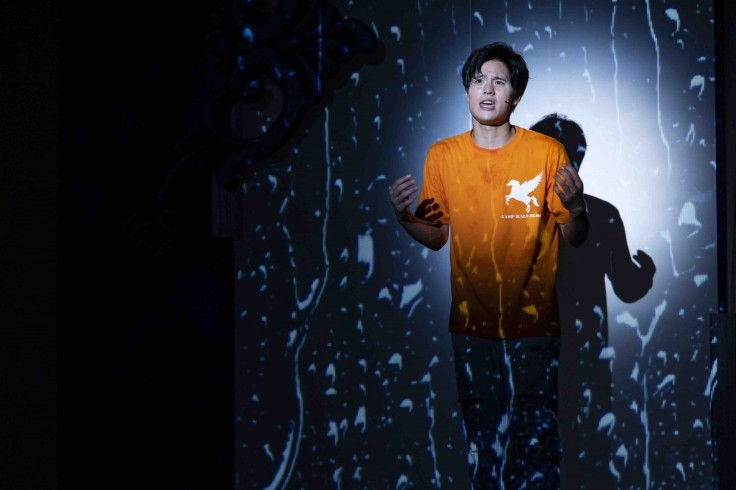
Q: Would it be weird to ask what their reaction to that was? Or like, how that went down?
Keito: They knew me very well, and they knew that I was struggling a little bit in my life during that time. They are my mentors, but also very good friends of mine. We've been together because we've been together for years and years, years and years. Also talking to them, They really had my back. 'If that's what you really want to do, you should go ahead and try it.' And then I went.
Q: It's nice that they were very supportive. What was the experience at the school like?
Keito: At first it was very difficult for me. There were language barriers. I mean, I lived in England from nine to fourteen, and then I when I came back to Japan, I went to international school. I thought I could speak English, but then went to America and went into acting school. I mean, acting is sharing lines to the audience; so, everyone needs to know the lines word by word.
For the first half year or something, all my classmates, when we were in acting classes, all my classmates were getting feedback from the teacher about all the acting things, like, 'Okay, what are you thinking about?,' or, 'You should say your lines like this,' 'You should talk to your partner,' and blah, blah, blah, but the only feedback I got from my teacher for half a year was, 'I'm not sure what you're doing right now because I cannot understand a word from you. I was learning IPA (the International Phonetic Alphabet)...Why don't people understand me? What kind of accent do I have? What is the difference between the Japanese accent and the English accent, or the British accent and the American accent?
Q: I was wondering about that, like if the British accent would almost get in the way.
Keito: Yeah, it did. I mean, when I started living in America, I was very surprised. 'Wow, people speak a different way." The first living in the dormitory. I'd never had a roommate in my life before. The dormitory was eight stories or nine stories high. Each story had twelve people and there were six rooms. Each room had a bunkbed, and I'm like, 'Oh my God, bunkbeds. I've never lived in bunkbed before." Or you know, being with a roommate, sharing a room, and sharing one kitchen between four people or, you know, sharing three bathrooms with twelve people. I loved it so much. I felt like I was actually living. Sharing. I have lived with my family, but not for a long period of time. I really loved it.
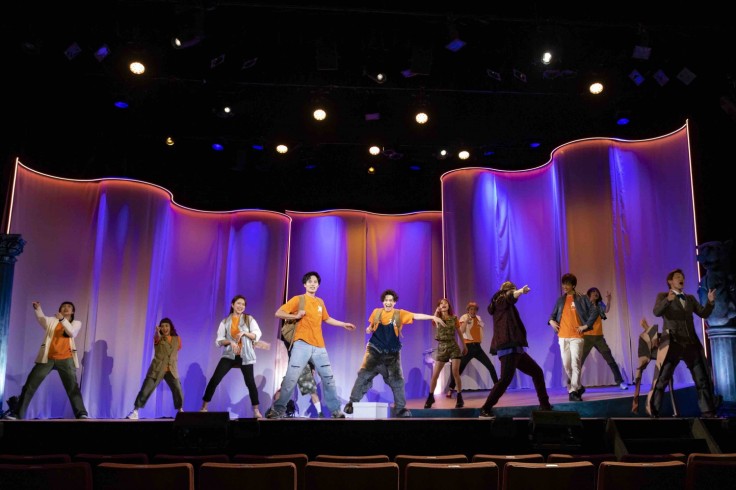
Q: Would you recommend other Japanese actors to take the leap and pursue their dreams in America, too?
Keito: If they're willing to do it, I would definitely recommend it to them. I would recommend some people who are actually willing to do it, but I wouldn't want to force someone to do it because, of course, I had an amazing experience, but it was not only a happy experience. There were ups and downs when I was actually living in America. And so, I wouldn't highly recommend it, but I would if they're willing to do it. I would say go ahead. It will actually change your life. I don't know beyond because my graduation was in 2020.
I had an amazing experience that the experience the amazing experiences not only DICOM happy experience, right? Like on there were like ups and downs when I'm when I was actually in America. And so I wouldn't like highly recommend it. But if they're willing to do it, I would say go ahead. It will actually change your life. I don't know beyond. My graduation was in 2020, it was a virtual one. The city was in lockdown. Nobody knew what to do. There was nothing going on. I in New York until July or something. Throughout my life, I've always been moving forward: doing something. That was the only time in my life that I actually stopped. Everything just blacked out. Everything was stopped. I didn't know what to do. There was nothing that I could do, and I stopped for like a few weeks and a month.
Then I started thinking about, 'Okay, what do I really want to do in my life? What do I actually want to do?' and I started questioning things about like, 'Who am I? Why? Why am I myself?' If I didn't have an experience like that, I actually would never have thought about that. I mean, that's when I really thought about like, 'What do I really want to do in my life? Would I like to do acting? Would I like to do singing? That was one transition period in my life. Being alone for one month or two months where nothing was actually happening around me was an experience to me. I wouldn't want to recommend it, but it really changed my life. I still feel that the decision I made was not wrong. It is what I had inside my heart. That was an experience for me, and I never would have had that kind of experience if I were in Japan.
Q: What is your impression of New York? Did you have a favorite place in the city?
Keito: I love New York. The place I loved the most was- there are some bars in New York that have a piano inside. There's a person who is playing the piano, singing musical songs, and all the people who come into the bar are singing Broadway songs. I used to go there if I had some time and money. I brought some sheet music and I was like, 'Hey, I want to sing this,' and the guy would play and sing. I could never do that in Japan; not because of my career, but because of courage.
Q: Was it like, 'I'm in a new environment, no one knows who I am, so it's totally fine?'
Keito: Yeah! I loved it because, you know, I love theaters. I love musicals, but I didn't have friends who loved musicals like me. The only person who I could speak about theaters or musicals with was my dad. So, I actually never had a friend who, you know, loves musicals. I go to New York, and everybody loves musicals MORE than I do. I felt this unity.
Q: What drives you as an actor? How do you tap into the inner emotions needed to properly convey your characters? What has been your most memorable role yet, and why?
Keito: What drives me the most is that I read the script, and I really want to tell the story to the audience. Mostly when I read scripts or when I read stories, I love sharing things. Not only theatre, but I love sharing what I have. I love sharing food, I love sharing drinks, and I love sharing experience with other people. I think the job of an actor is to actually tell the story, share the story with the audience. That sharing is what I love most about acting. I love going into characters, and I like thinking about the characters. I love the process of like, how I could dig inside the characters.
I feel like when I'm acting, I'm lending my body to another person. Like I said before, I empty myself. I love the process, and I really love sharing stories. I love getting feedback from the audience about what they felt about the story. One of the first plays that I did in Japan was called The Son, written by Florian Zeller and directed by Ladislas Chollat. I was playing a son, and the father who was playing the role was my actual father. That was a very interesting experience for me because I was playing Nichoals, my father was playing Pierre, and, you know, I would never fight with my father, or I would never argue with my father. In the play we're arguing, we're fighting with each other. I would never have this angry feeling towards my father, but when I was Nicholas, my father was actually Pierre.
I felt so angry, and I felt all my emotions were like, moving towards my dad who is actually my real dad. That was when I fell into the magic of acting that I could never get out of. This feeling inside of me, this emotion inside me is moving and expanding to a place I've actually never experienced in my life. That was a very memorable experience for me.
Q: What goals do you have for your career? What is an ideal world that you'd like to take? What do you like to act in American productions? And what kind of legacy would you like to leave?
Keito: I really want to try doing a role in America or outside of Japan, which was one of my main objectives when I went to America to study. I wanted to act in English and to act in a different world outside of Japan. So, that is one of my main goals. TV is as well. I've actually been doing some auditions from here. I've been doing some auditions from here, doing self-tapes. I love doing self-tapes.
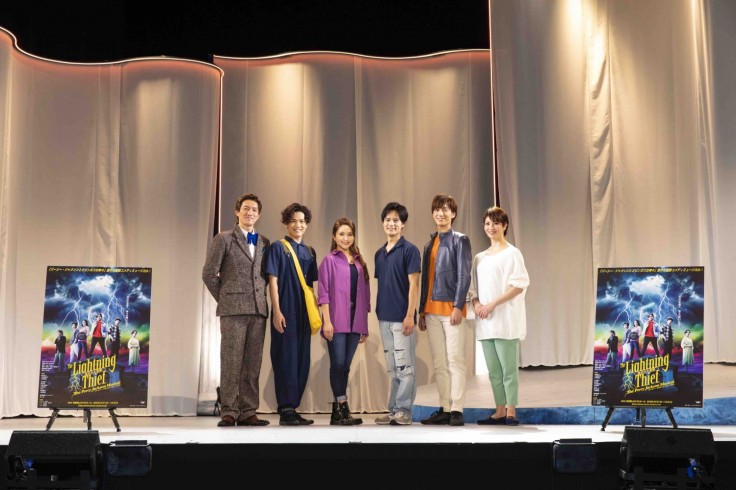
Q: Do you have an ideal role that you would be aiming for?
Keito: I mean, my biggest goal was to be on Broadway because that was Johnny's [the man behind the company] main goal, and I really want to pursue this dream that he had. It's going to be a very tough road, but I feel like I can do it. I also want to act in England as well; to be in the Royal Shakespeare Company. In Japan it is very difficult to have dream vectors. I've been back in Japan for two years now, and the more I stay in Japan, I feel like the world is so far away. But I still have these dreams that I really want to do inside me. I would never want to forget it. I don't usually say this to the interviews I have in Japan, but I feel like I want to say this right now to remember what I said.
When I was in New York, I went to auditions for off-Broadway. And obviously I'm non-Equity so I sat in front of the building for five or six hours to wait for the audition. But I mean, all of those productions went down because of Corona. I still have those dreams inside me. I would love to be on Broadway or to do Shakespeare in England or to be on TV and in films in America. Those are my biggest goals in my life.
Q: What is your view the Japanese entertainment industry as someone who spent considerable time abroad? Like, how do you balance this aspect of your identity? Because I was wondering how you would interact or take in everything as someone who spent time away?
Keito: I feel it's completely different, the entertainment industry in America and England versus Japan. I mean, every country is different, I guess. I feel like there are a lot of stories and dramas that need to be told in Japan that need to be spoken outside of Japan. Japan is an island country, and the language, all this entertainment is actually stuck in Japan. It doesn't really spread out from Japan.
Because I've been living in Japan and America and England, I feel like there are so many things, so many talents, and so many things that should be spread abroad. I feel like if I have the chance, I would want to do that today: to spread the Japanese culture or the Japanese stories or the Japanese entertainment to other countries. When I went to America and when I was living in England, they all have this stereotype of Japanese people which I feel is very different right now.
Japan is like ninjas or sunrise, good at math or good at computers. But there are lots of other people in Japan, and there are lots of stories that need to be told. There's things that need to be told to other people, and I don't know how I could.
Q: I guess it's kind of a representation issue, right? Like, how is your country being represented abroad? A friend of mine once asked me what my thoughts were about Western people who are very into watching Japanese content, which is a weird thing to say to someone who is not even Japanese. My parents are from Taiwan. But my feeling on it has always been that as long as you recognize that if you watch anime, for example, that that's not the only representation of Japan and that you take a lot of time to actually research and delve into the culture and the people and the society there, then I think it's fine to consume that content. What sucks is if your experience ends there at the stereotype.
Keito: Recently I've been playing this role in M. Butterfly, and I was learning the traditional Japanese culture where you dress in Kimonos and act as a female. It's kind of similar to what people did in England a long, long time ago where boys or men used to act as women. I was training for it for a couple of months to do this role. Before, I didn't actually know the depth of this traditional entertainment. I feel like those traditions that Japanese cultures have should be told outside of Japan.
Q: And things like Drive My Car, for example, that was talked a lot about earlier this year. I may have a skewed view on this because I also work for the Asian American International Film Festival in New York, and so a lot of times we do get Japanese films. It's really fun to see what people come up with and different film makers all over Asia come up with in addition to Asian American filmmakers. So, I think there's a chance that if people know where to find this content, there's a chance now of people finding a more modern or more true-to-life representation of Japan. It just depends on whether or not they have the resources to find these places.
Keito: True, yeah.
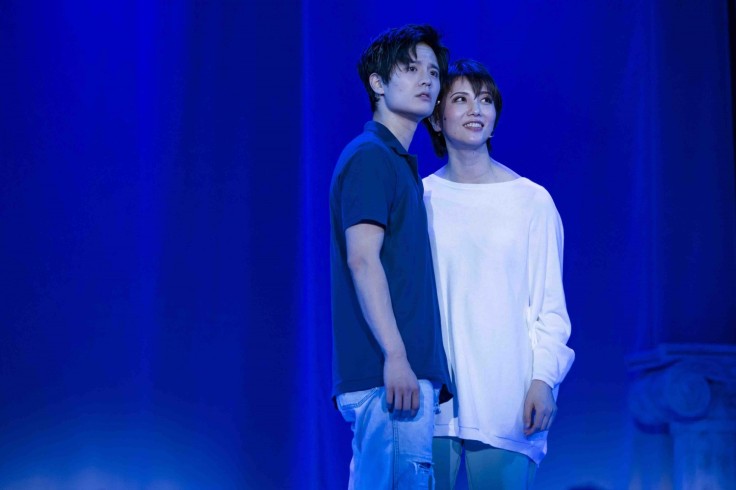
Q: What would you like American audiences to know about you? Is there anything you'd like to say to new or existing fans?
Keito: First, I'm so glad someone is reading this interview, and I'm very happy to be in this interview today. The reason why I'm very happy to be in an American interview is because living in America actually really changed my life and really inspired me. I really love the American culture, and I love what I gained from the city, from living there. The experience I had there being in acting school, people from different countries coming into New York, trying to do their best, sharing this experience. We all wanted to be actors. That experience of, like, two and a half years really changed my life.
I feel very lucky today, right now, to be actually interviewed by one of the young American publications. I'm very honored to be here today and to talk about my experiences and what I really want to do in my life. I love to express my thoughts and my feelings towards acting, and I hope that my existing fans gain something from it, feel something through my acting. When I'm in the theatre, I feel like I'm standing on stage to make someone's life better, make their day or something. I love that feeling of making some else's day, and I wish I could do that for the rest of my life. I really hope that this interview has made someone's day.
Q: That's so nice. One quick follow-up question. You briefly mentioned before that there were really great time sand really terrible times when you were in New York, and I was wondering if you feel comfortable sharing one best memory and one worst memory? Just because I fully believe that studying abroad changes your life, and it really is because you experience the best of times and the worst of times.
Keito: I believe the best memory, not the only one, but the first day in acting school I believe is my best memory from when I was in America. I was very nervous. I would think, 'What is going to happen?' 'What if people are scary?' The first day in acting school, everyone in school was singing songs from musicals. People from different races, different countries, are coming into New York to be in this school because that's what they really want to do. People from different cultures, different ways, different people, different humans loving this same one thing. I would never have experienced that if I had stayed in Japan. I felt like Percy Jackson when he first went to Camp Half Blood. Like, 'Woah! There are actually people like me? I thought I was the only one.' But there are lots of people like me.
Q: That's amazing. That sounds like an amazing feeling.
Keito: The worst memory was during lockdown. I was actually living in this small, small apartment in Manhattan. There were protests going on around that time, and every night smoke from the fires would come into my room. Then like outside there were people roaring and there were fires and police cars and rubber. I do understand it, but it was kind of scary at that time to be in the middle of that. But it definitely gave me some time to think about my life. It's not that it was the worst time.
Q: It was a very trying time. You mentioned Camp Half Blood. A lot of Percy Jackson is about identity and him trying to figure out who he is. I was wondering if with your upbringing in the UK, if that was ever a part of your identity that you had to deal with? Did it every make you feel like you didn't fully belong in Japanese society or British society?
Keito: That might be the reason why I love acting. Once reason I want to act might be because I've never felt like I belong in any place. Because when I was in England, I was by myself, and I was the only Asian person in the British boarding school. When I came back to Japan, because I hadn't really experienced Japanese school, I couldn't really speak Japanese as well as other people, so people treated me as a foreigner. That might be the reason why I like acting. What I love the most is digging into the characters; to think about what he felt, to know his identity. Maybe I'm trying to find my identity through digging through other characters. I feel like Percy Jackson has the same kind of problems that I had when I was a kid.
Q: I was curious because I feel like that's a very common struggle for anyone who grows up Asian American. It's like you're part way in and part way out of any given culture you're in.
Keito: I believe this struggle could be changed in the next five or ten years. I really want to try doing that.
And, there you have it! I greatly enjoyed hearing about Keito's journey as an actor and his passion for musicals. If you stay updated about Keito, follow the official Johnny & Associates Twitter.
© 2025 MusicTimes.com All rights reserved. Do not reproduce without permission.







